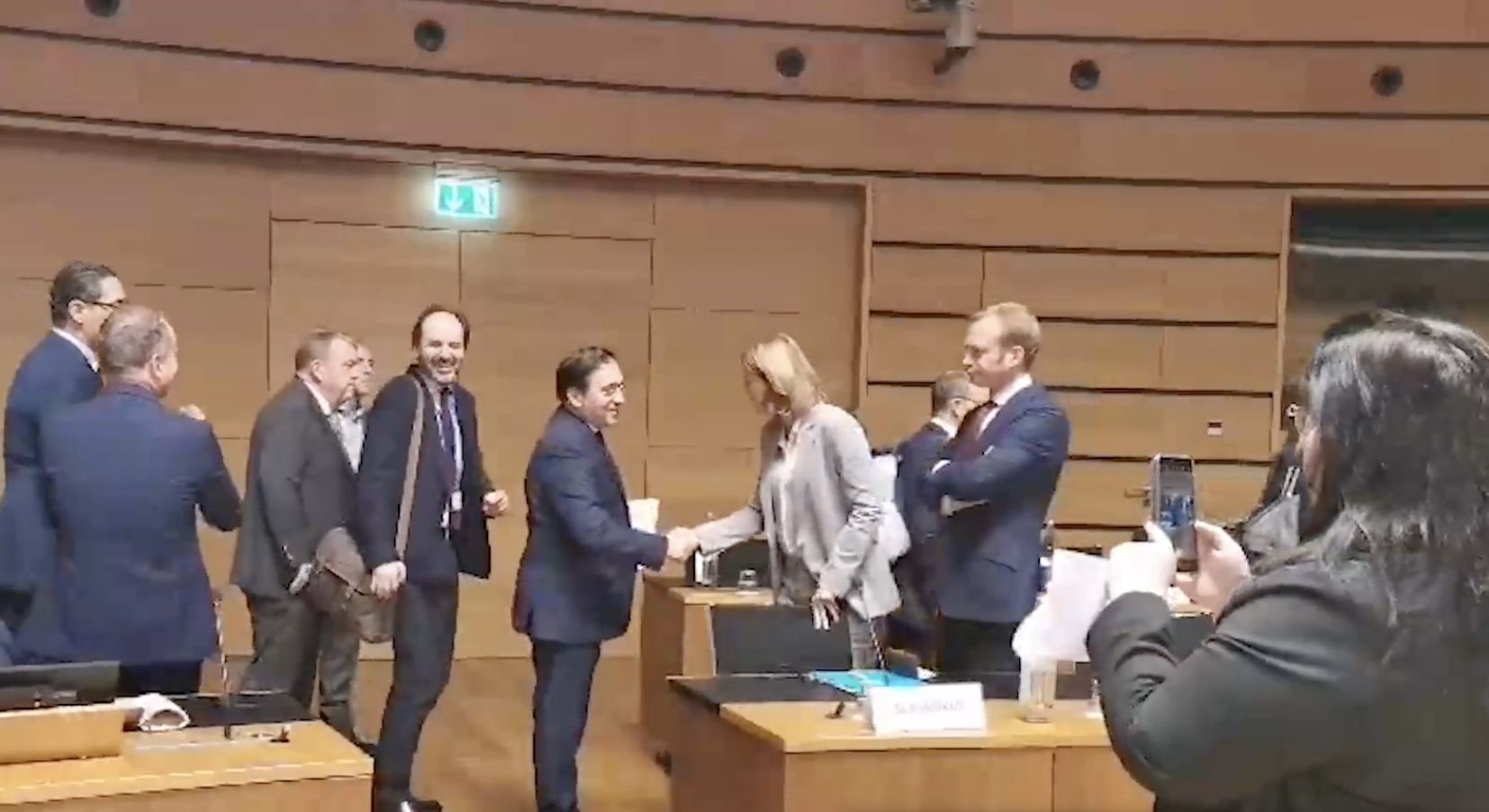If at the last meeting in Brussels it was the Finnish minister for European affairs, Anders Adlercreutz, who - even though he used the Catalan language to do so - questioned Spain's proposal on granting official EU status to new languages, this Tuesday it was the Latvian minister, Krisjanis Karins, who bluntly chopped into the arguments of the Spanish foreign minister José Manuel Albares to include Catalan, Galician and Basque among the official languages of the EU. Outside the General Affairs Council meeting that was to address the issue, the head of Latvia's foreign affairs ministry made clear his conviction that the number of official languages of the EU will not be expanded "at this time". "I don't think at the moment this is the number one issue we need to discuss. We have many issues on the table. We have the geopolitics and the strategic position of Europe in the future. That's what I think we need to devote our time right now," he asserted.
Once inside, the Lithuanian representative Gabrielius Landsbergis added to Latvia's reluctance, according to Europa Press, reportedly pointing out "the political impact" that this measure could have for other member states such as the Baltics, where there is a Russian speaking minority.
Nevertheless, Spanish foreign minister José Manuel Albares celebrated after the meeting that there had been no veto from any state to continue making progress on this issue and that, on the contrary, there were interventions in support of the Spanish proposal.
In fact, even Finland's European affairs minister today publicly downplayed his reluctance before the meeting began. Although Anders Adlercreutz asserted that most countries had showed the same caution as he did during the first Brussels meeting that discussed the matter on September 19th, he expressed confidence about the legal and economic reports for the measure that have been commissioned, given that in that first meeting, as he said, the issue was broached quickly and without preparation or explanation of the economic and legal implications. He also explained that at the preparatory meeting that took place in Murcia a few weeks ago, he discussed the subject with Albares, and affirmed that he understood the importance of the issue, as well as expressing confidence that a solution would be reached.

